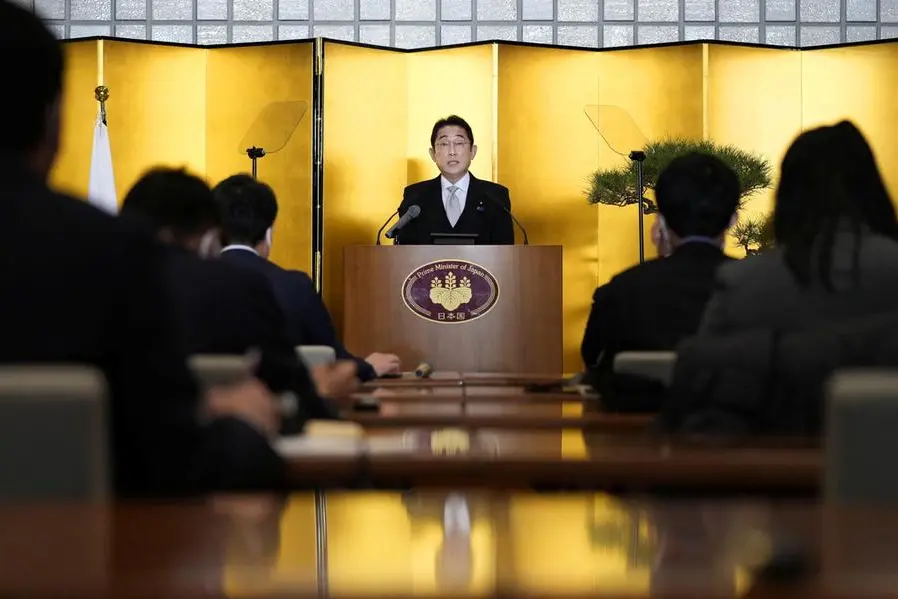PHOTO
Japanese Prime Minister Fumio Kishida called on Thursday for business leaders to accelerate wage rises, warning that the economy risked falling into stagflation if pay rises lagged price increases.
"There are warnings of alarm bells that stagflation emerges if wage growth lags behind price hikes," Kishida told a New Year gathering of three major business lobbies.
Stagflation is a combination of a low economic growth and surging inflation, depriving households of purchasing power and making it difficult to make ends meet.
While piling pressure on profitable companies to raise wages, Kishida's government has emphasised the need for facilitating labour turnover by making it easier for Japanese employees, who are still accustomed to lifetime employment, to change jobs.
The government vows to spend 1 trillion yen ($7.5 billion) in the next five years for reskilling workers, while encouraging firms to make pay scales more flexible in raising pay.
Japanese firms tend to prefer one-off bonus payments for rewarding performance rather than raising fixed base pay, so they can easily adjust personnel costs in good times or bad.
The Japanese Trade Union Confederation, known as Rengo, is demanding wage rises of 5% at this year's labour and management talks. Analysts consider that to be a tall order, since annual wage rises have averaged around 2% in recent several years.
Still, Japanese policymakers have pushed for companies to implement pay rises that outpace inflation and therefore lift real wages. That is needed to stoke a virtuous cycle of growth in the economy, the world's third largest, they say.
($1 = 132.54 yen) (Writing by Tetsushi Kajimoto; Editing by Clarence Fernandez and Bradley Perrett)





















